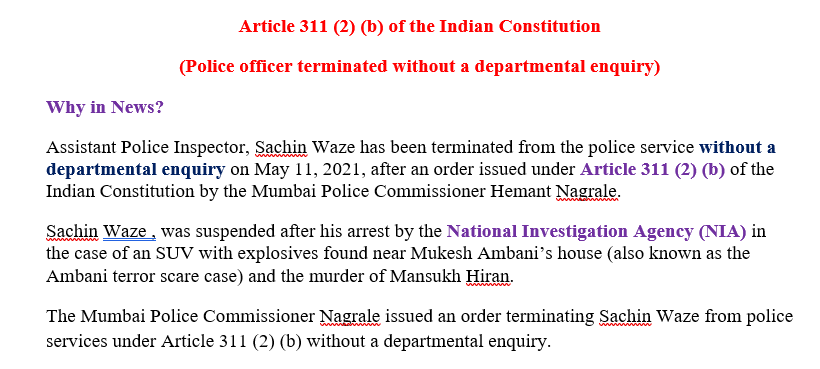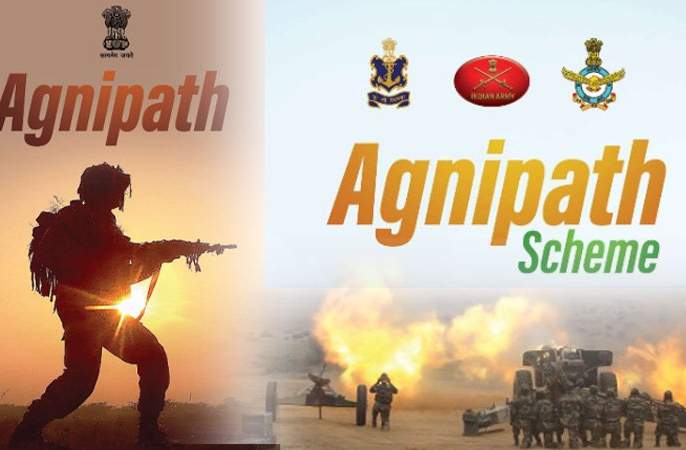Why Article 311 (2) (b) of the Indian Constitution in News?
Assistant Police Inspector, Sachin Waze has been terminated from the police service without a departmental enquiry on May 11, 2021, after an order issued under Article 311 (2) (b) of the Indian Constitution by the Mumbai Police Commissioner Hemant Nagrale.
Sachin Waze , was suspended after his arrest by the National Investigation Agency (NIA) in the case of an SUV with explosives found near Mukesh Ambani’s house (also known as the Ambani terror scare case) and the murder of Mansukh Hiran.
The Mumbai Police Commissioner Nagrale issued an order terminating Sachin Waze from police services under Article 311 (2) (b) without a departmental enquiry.
What is Article 311(2)(b)?
Article 311 (2) states that no civil servant shall be removed or dismissed or reduced in rank without an enquiry wherein the person accused shall be informed of the charges and given an opportunity to respond to the charges against him or her.
However, there are exceptions to Article 311 (2):
Article 311 (2) (b) states that if the authority vested with the power to remove or dismiss or reduce in rank is satisfied for some reason, to be recorded by the authority in writing, it is not reasonably practical to hold such enquiry.
Can Sachin Waze challenge the dismissal under Article 311 (2) (b)?
Yes, Sachin Waze can approach the Maharashtra State Administrative Tribunal.
A government employee or a civil servant dismissed under Article 311 (2) (b) can approach the State Administrative Tribunals or Central Administrative Tribunal or the Courts.
What is NIA?
The National Investigation Agency (NIA) is India's counter-terrorist task force.
The agency is empowered to deal with terror related crimes across states without special permission from the states.
The Agency came into existence with the enactment of the National Investigation Agency Act 2008 by the Parliament of India on 31 December 2008, which was passed after the deadly 26/11 terror attack in Mumbai.
The NIA (Amendment) Bill 2019 aims to give more teeth to the investigating powers of the NIA. It empowers the NIA to probe terror attacks targeting Indians and Indian interests abroad.
The amended legislation, will provide NIA to nvestigate scheduled offences such as human trafficking; circulation of fake currency; manufacture and sale of prohibited arms; and cyber-terrorism .
The amendment will now also allow NIA to investigate the Sri Lanka Easter Bombings and Kabul Gurudwara bombing.
Headquartered in New Delhi, the NIA has branches in Hyderabad, Guwahati, Kochi, Lucknow, Mumbai, Kolkata, Raipur and Jammu.[8] It maintains NIA Most Wanted list.




.jpg)
.jpg)
.jpg)
.jpg)
.jpg)



.png)

